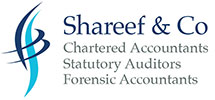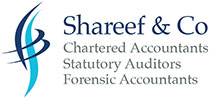Proof of employment expenses now required
HMRC now insists on evidence of employee expenses claimed through PAYE. What records do you need to keep?

Due to numerous incorrect claims, it's now necessary to submit evidence to HMRC to claim tax relief on certain employment expenses that are not reimbursed by employers. The new process only affects those that claim the relief via PAYE; those completing self-assessment tax returns can continue to claim employment expenses within their tax returns and do not need to provide receipts unless HMRC requests them. Additionally, there is no need to send proof regarding claims for flat rate expenses, such as uniform, work clothing and tools.
Employees who need to claim tax relief on their employment expenses via PAYE can do so using Form P87 by post. HMRC guidance confirms that robust evidence will need to be submitted alongside the form. For example, if a claim is made for the costs associated with working from home, the employee needs to supply a copy of their employment contract showing that they must work from home. Claims for business mileage are also in the firing line, with employees now expected to record the start and end postcode along with the reason for every single business journey.
A copy of the form and guidance on the types of evidence that need to be enclosed can be found here.
Related Topics
-
Taking advantage of the employment allowance
If you’re worried about the cost to your business of the hike in employers’ NI from April 2025, the higher employment allowance (EA) might alleviate some of the pain. But will you qualify and are there any traps to avoid?
-
Welsh government increases charge on some residential property purchases
The Welsh government published its Budget for 2025/26 last week. This included a number of tax announcements. What are the key points?
-
Need extra cash? Borrow from your company tax free
As a company owner manager if you borrow cash from your company HMRC applies tax charges on you and your business. However, it’s possible to legitimately avoid these and benefit from a tax-free loan indefinitely. What’s involved?



 This website uses both its own and third-party cookies to analyze our services and navigation on our website in order to improve its contents (analytical purposes: measure visits and sources of web traffic). The legal basis is the consent of the user, except in the case of basic cookies, which are essential to navigate this website.
This website uses both its own and third-party cookies to analyze our services and navigation on our website in order to improve its contents (analytical purposes: measure visits and sources of web traffic). The legal basis is the consent of the user, except in the case of basic cookies, which are essential to navigate this website.